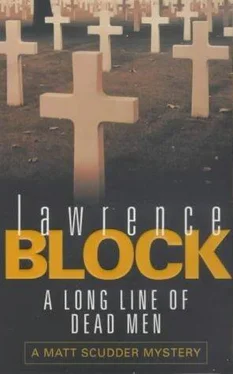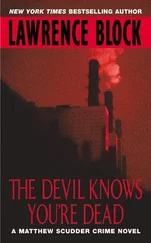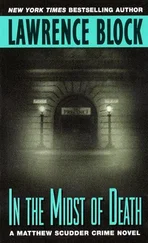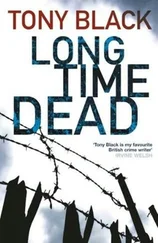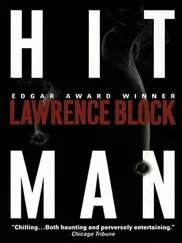Lawrence Block - A Long Line of Dead Men
Здесь есть возможность читать онлайн «Lawrence Block - A Long Line of Dead Men» весь текст электронной книги совершенно бесплатно (целиком полную версию без сокращений). В некоторых случаях можно слушать аудио, скачать через торрент в формате fb2 и присутствует краткое содержание. Жанр: Триллер, на английском языке. Описание произведения, (предисловие) а так же отзывы посетителей доступны на портале библиотеки ЛибКат.
- Название:A Long Line of Dead Men
- Автор:
- Жанр:
- Год:неизвестен
- ISBN:нет данных
- Рейтинг книги:5 / 5. Голосов: 1
-
Избранное:Добавить в избранное
- Отзывы:
-
Ваша оценка:
- 100
- 1
- 2
- 3
- 4
- 5
A Long Line of Dead Men: краткое содержание, описание и аннотация
Предлагаем к чтению аннотацию, описание, краткое содержание или предисловие (зависит от того, что написал сам автор книги «A Long Line of Dead Men»). Если вы не нашли необходимую информацию о книге — напишите в комментариях, мы постараемся отыскать её.
A Long Line of Dead Men — читать онлайн бесплатно полную книгу (весь текст) целиком
Ниже представлен текст книги, разбитый по страницам. Система сохранения места последней прочитанной страницы, позволяет с удобством читать онлайн бесплатно книгу «A Long Line of Dead Men», без необходимости каждый раз заново искать на чём Вы остановились. Поставьте закладку, и сможете в любой момент перейти на страницу, на которой закончили чтение.
Интервал:
Закладка:
"We get fellows who are out of work and looking for stopgap employment until something opens up for them. They're often good workers, but they don't stay with us long. And then we get men who work for us because they can't do any better."
"What kind of checks do you run on them?"
"We do the minimum. I try not to hire convicted felons. After all, this is security work. You don't hire the fox to guard the henhouse, do you? But it's hard to avoid. I can run computer checks, but what good is that when the name's a common one? 'Query: Has William Johnson been an inmate in the New York State prison system?' Well, there are probably half a dozen William Johnsons in prison in this state on any given day, so how am I to know? And when a man comes to me and says his name is William Johnson, how can I tell if it's the name he was born with? If a man shows me a Social Security card and a driver's license, what can I do but accept it?"
"Don't you run their prints?"
"No."
"Why not?"
"It takes too long," he said. "By the time I get a response from Washington, two weeks or more have passed. The applicant's found other work in the meantime."
"Couldn't you hire him provisionally? And let him go if he doesn't check out?"
"Is that how they do it at Reliable? Well, I'm sure you charge more for your services. A Manhattan firm, a fancy address. That's all well and good for the clients who can afford to cover your overhead for you." He picked up a pencil, tapped its eraser end on the desktop. "I can't have half my employees checking up on the other half," he said. "I'd be out of business in no time."
I didn't say anything.
"Two years ago," he said, "we tried taking fingerprints when we accepted applications for employment. You know what happened?"
"Your applications dropped off."
"That's exactly right. People didn't want to go through a messy and demeaning process."
"Especially the ones with outstanding warrants," I said. "It would have been particularly messy and demeaning for them."
He glared at me. "And the ones who had stopped paying alimony," he said. "And the ones running away from bad debts. And, yes, the ones who'd served time for minor narcotics violations and other low-level criminal behavior. It's hard to grow up in certain neighborhoods without getting arrested and fingerprinted along the way. The bulk of those men do just fine in this line of work."
I nodded. Who was I to judge him, and what did I care how he ran his business? He fired men for drinking because it bothered the clients. But what client was bothered by the fact that the man guarding his warehouse had failed to pay child support, or sold a gram of cocaine to an undercover police officer? Those weren't offenses you could smell on a man's breath, or spot in his walk.
"Let's get back to Shorter," I said.
Shorter's file contained the application he'd filled out, along with a record of the hours he'd worked and the compensation he'd received. No photograph, and I asked about that. Wasn't it part of the routine to photograph all employees?
"Of course," he said. "We need a photo for their ID. We take them right here, in front of that wall. It's a perfect backdrop." So where was the photo? Laminated to the ID card, I was told, which Shorter would have turned in when they let him go, and which would have been routinely destroyed.
"Did he turn it in?"
"I assume so."
"And it was destroyed?"
"It must have been."
"What about the negative?"
He shook his head. "We use a Polaroid. Everybody does. You want to be able to make up the ID right away, not wait for the film to come back."
"So there's no negative."
"No."
"And you only take the one shot? You don't shoot a backup to have on file?"
"We do, actually," he said, and shuffled through the file. "It doesn't seem to be here. It may have been misfiled."
Or removed from the file by Shorter, I thought. Or not taken in the first place, because Martin Banszak didn't seem to run the tightest ship around.
I took another look at the application. Shorter had had the same address on East Ninety-fourth Street when he'd applied for the job back in July of '92.
July of '92?
I checked the date with Banszak. Had Shorter actually been working there for seven months by the time Alan Watson was killed?
"Yes, and he was very steady, very reliable," he said. "That's why I was inclined to give him a break when he had the first incident."
"The drinking."
"Yes. He must have been ashamed, because he didn't even offer an argument in his own defense, just hung his head waiting to be fired. But his record was excellent, and he'd been with us for over seven months, so I gave him that second chance." He frowned. "The next time, of course, there was an official complaint called in. I had to let him go."
Seven months. Waiting, biding his time.
I picked up the application. "I'll need a copy of this," I said. "Is there a place in the neighborhood where I can get it copied?" He said he had a desktop copier and would run it for me. He went into another room, came back with the copy but held on to it for a moment.
He said, "I'm not sure I understand. If Shorter knows something, if he's disappeared in order to escape from the man who killed Watson"- that was the explanation I'd devised for him- "shouldn't the police be brought into the picture?"
"If it comes to that," I said. "But it looks as though Shorter's been living under an assumed name, and that he might have invented most of what's on that application. If I can spare him the embarrassment of official attention from the police-"
"Yes, of course," he said. "By all means."
He didn't exist.
He'd carried a New York State driver's license, and its number was listed on his job application. But the DMV never heard of him, and the license number he'd written down was unassigned. The Social Security number was real, but the account was that of a State Farm insurance agent in Emporia, Kansas, whose name was Bennett Gunnarson, not James Shorter.
It would have made my life easier if Banszak had fingerprinted his employees, even if he'd done nothing with the prints but file them away. Earlier, I'd left TJ on guard at the rooming house and cabbed down to the Flatiron Building and back, borrowing a fingerprint kit from Wally Donn at Reliable. Before I left Shorter's room I had fogged the telephone receiver with my breath the way Banszak had fogged his glasses. I hadn't seen any prints then, but sometimes they show up better when you dust for them. And the telephone wasn't the only surface in the room that would hold a print.
Back on East Ninety-fourth, I dusted the phone, the window, the washbasin, the headboard and footboard, the switchplate, and everything else that looked at all promising. There was nothing, not even smudges.
"He cleaned up," I told TJ. "He deliberately wiped every surface in the room."
"The man be neat."
"The man's a killer," I said. "He killed Alan Watson back in February. A few days ago he killed Helen Watson, and- Jesus."
"Say what?"
"Helen Watson," I said. "One time I was talking to him and he asked me if I'd reached Helen Watson yet. How did he know her first name? He never heard it from me. Jesus, how long was he stalking them?"
I had my answer now.
He'd been stalking Alan Watson for a minimum of seven months, from the time he'd started work with Queensboro-Corona to the night he seized his opportunity and stuck a knife in the commodity broker's heart. God knows how many opportunities he must have had in all that time, but he'd been in no hurry, he'd been content to bide his time, waiting, letting the anticipation build.
Then, when he finally struck, he'd allowed himself the extra satisfaction of discovering the body and phoning it in to the police, like a firebug coming back to watch the firemen battle the blaze he'd set. And then, remarkably, he'd stayed on the job another six weeks before he could contrive to get fired.
Читать дальшеИнтервал:
Закладка:
Похожие книги на «A Long Line of Dead Men»
Представляем Вашему вниманию похожие книги на «A Long Line of Dead Men» списком для выбора. Мы отобрали схожую по названию и смыслу литературу в надежде предоставить читателям больше вариантов отыскать новые, интересные, ещё непрочитанные произведения.
Обсуждение, отзывы о книге «A Long Line of Dead Men» и просто собственные мнения читателей. Оставьте ваши комментарии, напишите, что Вы думаете о произведении, его смысле или главных героях. Укажите что конкретно понравилось, а что нет, и почему Вы так считаете.
